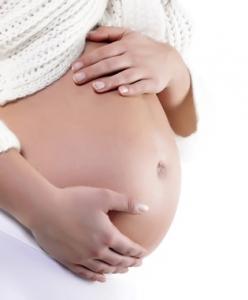Better educated, but older and more often socially vulnerable, the mom 2011 has a few curves but smoke less. These are some initial results of the national perinatal survey 2010, which warns of a tendency to late reporting of pregnancies but reassures on improving professional practice.
The 2010 national perinatal survey conducted by the Directorate General for Health (DGS), the Ministry of Health, in collaboration with INSERM focused on 15,187 women and their 15,418 children born between 15 and 21 March 2010 in 553 health facilities, public and private, at home and in three overseas departments (Guadeloupe, French Guiana, Réunion). The objective of this was to study the evolution of the health of women and newborns, medical practices concerning pregnancy and childbirth.
Good points on the Status of Women: The study notes that they are more educated, more skilled positions and smoke less during pregnancy. Thus, smoking in the 3rd trimester of pregnancy has decreased, 17.1% of women smoked at least one cigarette in the third trimester of pregnancy (vs. 20.8% in 2003).
The less positive aspects: a deterioration is emerging for the health of the mother and the course of pregnancy, older mothers and more often overweight are more frequently in situations of social vulnerability. The proportion of births to women aged 35 has over increased (19.2% in 2010 vs. 15.9% in 003). Yet the risks to the child and the mother, increases with maternal age. 17.3% of women are overweight and 9.9% are obese before pregnancy (vs. 15.4% and 7.4% in 2003).
A warning signal, late reporting of pregnancy: The percentage of women reporting pregnancy after the first trimester increases (7.8% in 2010 vs. 4.9% in 2003) reflecting a trend late reporting of pregnancy sign of difficulties, situations of vulnerability and insecurity of psychosocial or teen pregnancy ... This warning signal is enhanced by a decrease in the number of households living resource-related work and an increase of number of households living resource-related benefits, more than one household in five.
A favorable professional practice: Midwives take a greater role in prenatal care, even if the obstetrician is always in the main square. And 59% of women consulted midwife during pregnancy . The early prenatal care, 95% achieved by a midwife and the delivery is performed by a midwife in 55.8% of cases. The number of caesarean sections has not increased while the number of episiotomies decreased. The evolution of prematurity is substantially stable (6.6% in 2010) for all births since 2003. The exclusive breastfeeding rate rose during the various investigations, although this rate remains lower than it is in other countries.
Finally, the report states that the movement of restructuring and consolidation of childbearing continues, with more pregnancies type III and a decrease in the number of small maternity announcement but the study time access to maternity stable and strong development of networks of perinatal health, for better monitoring of women.









 21:31
21:31
 Sam
Sam


 Posted in:
Posted in: 






0 comments:
Post a Comment